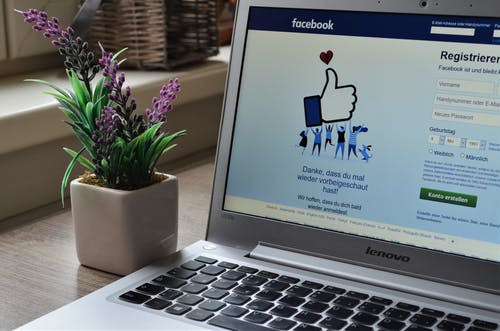Drug advertisers use search data to product their products.
Pharmaceutical marketers have turned to Facebook to generate awareness of their drug products in recent years. The social media company can target users based on their interests, which is exactly what drug makers are looking for –not necessarily because those on Facebook are searching for the drugs themselves, but because the companies can gather information from their demographics to determine whether they likely suffer from illnesses that their drugs treat.
The Markup’s Citizen Browser project collects Facebook user data to identify ads for prescription pharmaceuticals targeted at people who search related topics or join certain groups. The Markup found, “awareness of a disease is a frequent proxy for illness in targeting decisions made by advertisers.”

For example, if a Facebook user is searching for diabetes awareness groups, a pharmaceutical giant that markets insulin might introduce ads for its drug products. Zejula, an ovarian cancer drug manufactured by GlaxoSmithKline, was targeted at users who had shown an interest in “cancer awareness.” Brilinta, from AstraZeneca, was marketed to those searching for “stroke awareness.” And there are numerous other examples.
Closely related searches, such as those interested in “cigarettes” being marketed pulmonary disease drugs, also occurred. Sometimes, there was a more general correlation made such as Syprine, a Bausch Health drug, used to treat Wilson’s disease being targeted to users who’d searched “genetic disorder.”
By law, advertisers cannot use “sensitive” personal health data to target their drug products. However, Facebook has claimed that it does not collect anything that violates consumers’ rights, and these algorithms still exist. And, legally, the Health Insurance Portability and Accountability Act, or HIPAA, only applies to entities that directly deal with patient health information.
“We do not use medical history to inform the interest categories we make available to advertisers,” Facebook spokesperson Tom Channick said. “Instead, people are placed into interest categories based on their activity on Facebook, including the pages they like or the ads they click on.”
Jamie Bennett, a spokesperson for Novartis, responded to the claims by saying the company’s “goal is to reach audiences where it matters” and that it follows all legal regulations.
Kirsten Ostherr, director of the Medical Futures Lab at Rice University, feels there are problems with advertising drugs used to treat medical conditions. “Even if the advertiser doesn’t know exactly who you are,” Ostherr said, “if these ads are popping up on your screens everywhere, that potentially exposes information about you. Beyond that, targeting products by surveilling the sick inherently exploits vulnerable users’ privacy. One of the things that is most insidious about this to me is it’s really targeting and exploiting people who are in this vulnerable state and who have found real benefit from online patient communities.”
In 2019, researchers from the University of Pennsylvania and Stony Brook University reported they could predict whether a Facebook user had any of 21 health conditions through language in status updates alone.
“Our predictions from language captures diagnosis of diabetes about as well as predictions based on one’s body mass index,” noted senior author H. Andrew Schwartz, assistant professor at Stony Brook University College of Engineering and Applied Sciences. “We can treat language pattern analogous to a genome and see similar diseases seem to have similar linguistic patterns.”


Join the conversation!